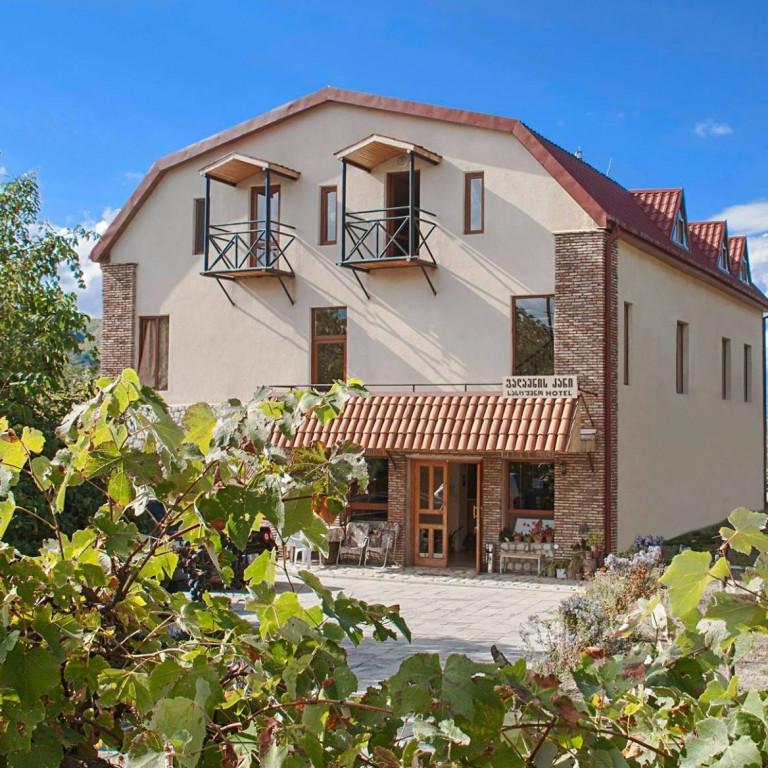
Help other travelers use your experience.
Review this destination, share your thoughts, impressions, pros and cons.
Let's make traveling easier than ever.
Chailuri (Niakhura) Castle - in Kakheti region, Sagarejo Municipality, south of the village of Chailuri, at the crossing of Kakheti Highway, a large castle erected on the left bank of the Chailuri River valley, also known as Niakhura Fortress.
Chailuri Castle was built in the Middle Ages, probably in the 16th century, and was a military defense fortress. The fortress closed the strategic entrance to the whole Iori valley and, together with the Manavi fortress, was a barrier for the enemy on the way to Tbilisi.
The monument is also important because in the surroundings of this fortress, in 1801, a historic battle, known as the last war of independent Georgia, took place.
By the 20th century, the castle had been quite damaged. The prison was restored in the 1980s, under the leadership of Parmen Zakaria and the Ministry of Culture.
The castle has a pentagonal plan, in the corners of which are towers with battlements and gun ports The fence and towers are completed by merlons. Traces of a square building are preserved in the prison yard. The fence is surrounded by gun ports. It is built using stone mortar. Traces of 3rd and 4th floors can also be seen in the tower. Roofing between floors is flat-wood.
The name Chailuri consists of two Turkish-Persian words (chai-water, luri-ravine) and means ravine water. There is one of the most iconic expressions spread throughout Georgia: "He drank the water of Chailuri", which means that something or someone is lost cause. This expression is a reflection of the miserable history of our country.
In a time of hardship, when the Dagestani feudal lords were attacking Kartli and Kakheti regions, the pursuers, especially from Kartli, pursued the enemy to the Chailuri valley to free the captives and stolen goods. If they reached them, the captives were taken back to their homeland, if they could not reach them and the raiders had gone beyond the Chailuri ravine, the pursuer returning home would hopelessly say, "We could not do anything. They drank the Chailuri water already." This meant that people were forever saying goodbye to relatives separated from their homeland.
Niakhura War: Omar Khan, emboldened by the death of Erekle II, marched on Kakheti with a large army in August 1800. In early November, the enemy was already in the Iori Ravine. Along with Omar Khan was Alexander, the son of Erekle, a seeker of the Kartli throne and an opponent of Russian rule in Georgia(He was also looking for an ally with the Shah of Iran). George XII asked for a truce to Omar Khan and his brother Alexander Batonishvili, but to no avail. Then George XII called up every man without exception for military service. Georgians gathered hastily. Russian soldiers were with them. The battle took place on November 7 near Niakhura. It lasted for 3 hours. The battlefield stretched from Nakhura to the end of Sagarejo. This battle ended with the victory of George XII.

Help other travelers use your experience.
Review this destination, share your thoughts, impressions, pros and cons.
Let's make traveling easier than ever.
Please login to ask a question
Ask a Question